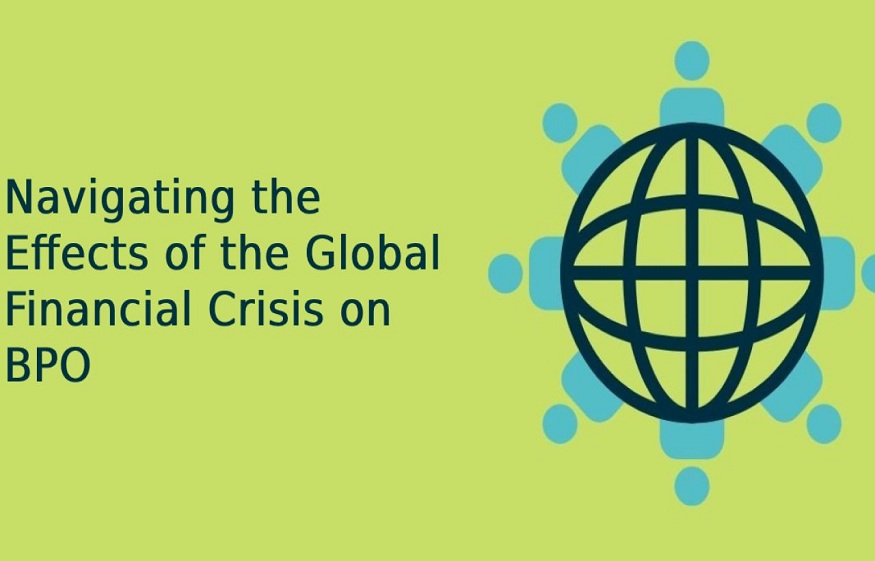In the last couple of years, several businesses have been hit by a financial crisis at a global level; the Business Process Outsourcing (BPO) industry is no exception. In this blog, we’ll talk about what a global financial crisis is, how it impacts BPO businesses, and how they can try to deal with it effectively.
What is a Global Financial Crisis?
A global financial crisis refers to a period that involves major economic downfall and impacts businesses in multiple countries/regions across the globe. This period is usually characterized by a sharp fall in GDP, a rise in the implementation rate, and financial instability.
While there can be many reasons behind a global crisis, it is typically brought on by a banking crisis, the collapse of the housing market, or a decline in global trade, among other reasons. Some of the worst financial crises in history are:
- Great Depression of the 1930s
- Asian Financial Crisis of 1997
- Global Financial Crisis of 2008
Let’s now learn how a financial crisis impacts the BPO industry.
How Does GFC Affect BPOs?
Demand
When there’s a financial crisis, businesses transition to business process outsourcing service providers to get their work done at a much lower price. And this increases the demand for BPOs, positively impacting the bottom line.
However, if the condition worsens, the companies might want to cut their production altogether, which can negatively impact the BPOs.
Price Pressure
A financial crisis can, in some ways, help the BPO business model, but it ultimately hurts it. For instance, if the client pool shrinks, BPOs will have to enter a price war and drastically cut prices to onboard new clients and retain existing ones. However, this can substantially reduce the profit margins of BPOs, making it difficult for them to survive.
Consolidation
A global financial crisis might lead to consolidation, as it has in other business domains.
Example:
The BPO industry has both established companies and budding startups. While a global financial crisis impacts both small and large businesses, small businesses are hit a little harder. For them, survival becomes a huge challenge. However, large businesses might see this as an opportunity and either acquire or merge with such small businesses.
Take the example of call center service providers. Some large and more established call center service providers may acquire smaller BPOs offering IT services and start offering bundled services to their clients.
This can benefit both small and established BPOs. For instance, small BPOs will not have to shut down their operations completely, and established BPOs can acquire smaller ones and expand their operations even further.
BPOs Must Prepare for Financial and Economic Uncertainty
A global financial crisis is an inevitable event because there are too many factors at play, but BPOs can survive provided they have a plan in advance. Here’s how:
Focus on Customer Satisfaction
BPOs can focus more on customer satisfaction and ensure quality no matter what. This can help them retain clients and maximize their revenue. Also, this can help bag new clients even when the market is saturated and competitive.
Diversify their Client Base
BPOs can diversify their client base across different geographies and industries. This will help them get things running even when there’s a crisis situation.
Monitoring the Market
BPOs should have a dedicated department for monitoring market trends and adapting to them as and when required. This can help them stay ahead of their competitors and survive an economic downfall.
Wrapping Up
Yes, a global financial crisis is a pretty depressing period. And almost no business is immune to the ripples of such an event. However, by taking certain steps, such as ensuring high-quality services, boosting marketing efforts, networking, etc., BPOs can reduce the negative impact and survive a crisis.



